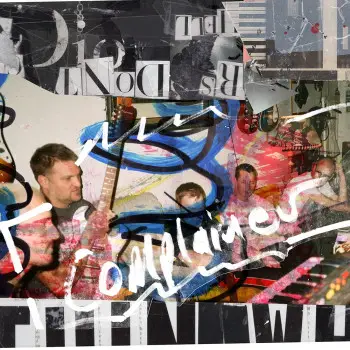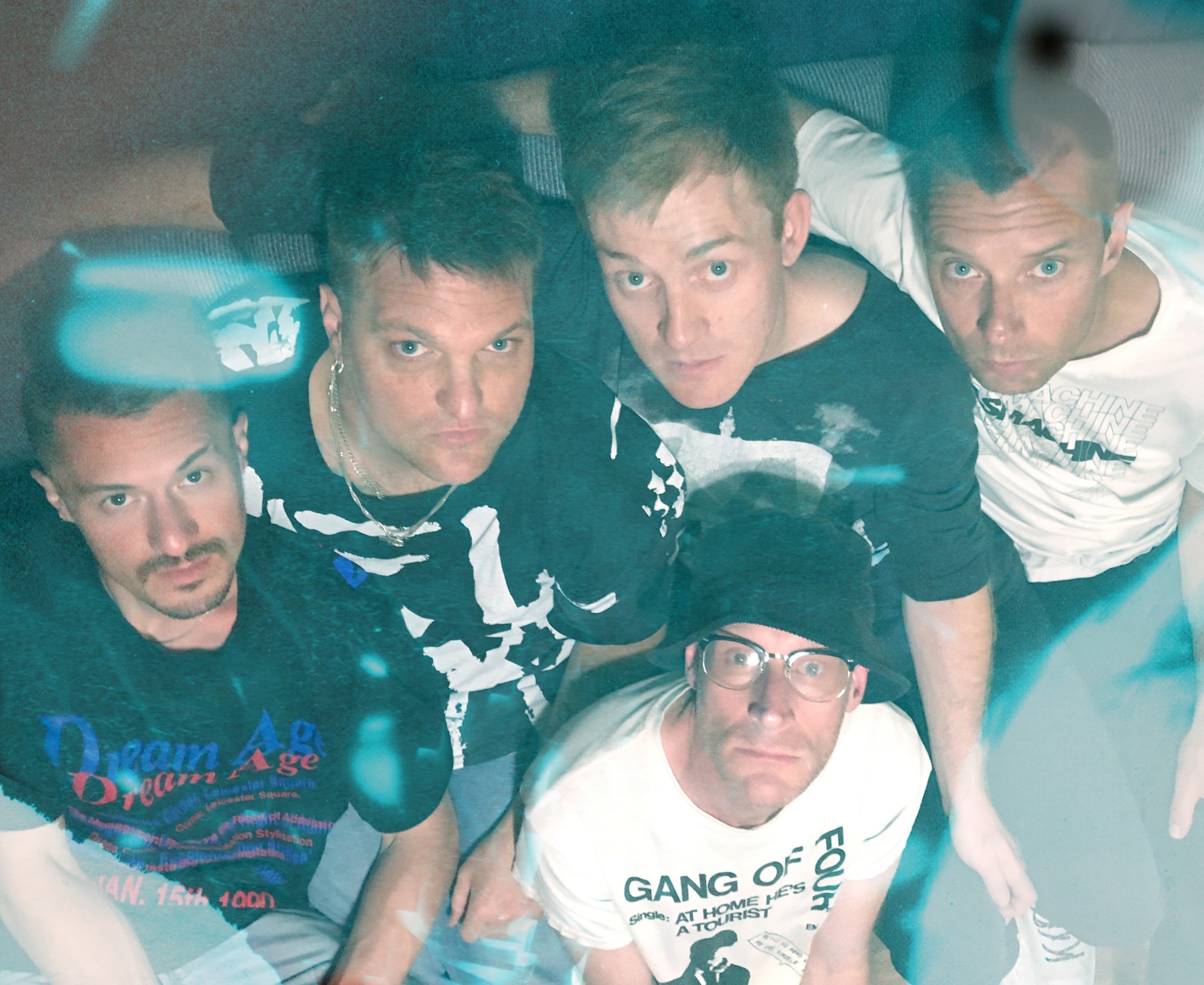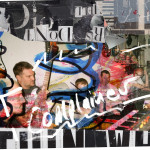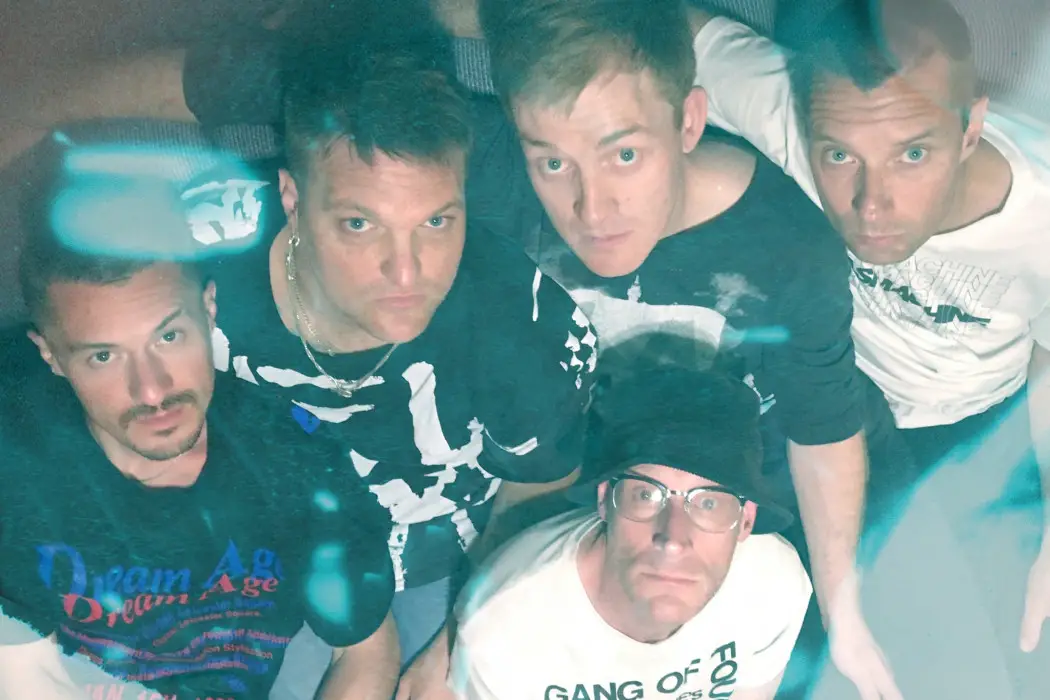Nathan Willett discusses the music and meaning behind Cold War Kids’ new songs, social change and politics, songwriting, and his own ideology and philosophy!
“Complainer” & “4th of July” – Cold War Kids
Rock music has always been about fighting the system in one way or another, and in recent years Cold War Kids have been out there on the front lines. In 2017, the band’s sixth studio album LA Divine examined topical political and social issues through both an individual and communal lens, tapping into the litany of mixed and often restless emotions associated with everyday life.
In doing so, Cold War Kids – an indie rock mainstay and underdog favorite for well over a decade – unintentionally established themselves as underground ambassadors to activism and justice in the modern age. Fans of the band found in the new music a breadth of freshly inquisitive philosophizing that was as humble as it was self-reflective and self-critical.

I showed you mine, now show me yours
Are you down to get serious?
Your wild life, coast to coast
Make it last, let’s take it slow
I can’t stand, waiting around to dance, uh-huh
When will you stop and look at the one you got?
You say you want to change this world
Well, do you really believe in magic?
But you can only change yourself
Don’t sit around and complain about it
“Complainer,” Cold War Kids
Never ones to keep quiet for long, Cold War Kids returned in June of this year with the announcement of their upcoming seventh album, NEW AGE NORMS, and two new singles: “Complainer” and “4th of July.” Whereas the band happily took a backseat observational role in their past records – LA Divine included – their recent songs find Cold War Kids fired up, assertive, and actively engaged.
“It seems like now more than ever, the personal is political,” frontman Nathan Willett tells Atwood Magazine. “Complainer” and “4th of July” find Cold War Kids tackling everything from patriotism to activism: “Complainer” finds an impassioned Willett wrestling through the concurrent exceptionalism and narcissism of advocates (“You say you want to change this world. Do you really believe in magic?… You can only change yourself, don’t sit around and complain about it.”) Meanwhile, “4th of July” reckons with the disparity between the true meaning of Independence Day, and the activities most Americans participate in during the holiday.
Both songs exhibit Cold War Kids’ fierce drive as much in the music as in their lyrics: The beats are groovy and dynamic, the rhythm sections are tight and expressive, and as usual, the melodies are infectiously memorable.
”The person that I am, the band that we are, the values that we have are in these songs,” Willett shared in the band’s press release. “They’re not tropes of rock and roll urges; they’re in pursuit of a new value, a better world. And it’s not so clear cut what those are, but these are the new age norms.”
It seems like now more than ever, the personal is political.
Meaningful and breathtakingly emotional, Cold War Kids’ new music is nothing short of brilliant. Their return is impassioned and charged, intellectually stimulating and provocative. Cold War Kids challenge listeners to think critically about who we are and how we interact with our world, all while providing an exciting, enjoyable soundtrack to our individual and group reflections. There’s no telling exactly how NEW AGE NORMS will play out as Cold War Kids’ seventh album, but they’ve kicked off their 2019 campaign with as promising a start as any band could hope for.
Nathan Willett spoke to Atwood Magazine about the music and meaning behind Cold War Kids’ new songs, politics, songwriting, and his own ideology and philosophy: Dive deep into “Complainer” and “4th of July” in our interview below!
… [It] seems like we are celebrating prosperity and individuality, more than communal sacrifice.

A CONVERSATION WITH COLD WAR KIDS
Atwood Magazine: Nathan, thanks for taking the time! “Complainer” and “4th of July” feel tailor-made for one another, both musically and topically. Can you discuss why CWK paired these two songs together for this release?
Nathan Willett: Great question – I was hoping there would be some loose American or subversively political theme [wink]. Musically they are very different, but both are funky and kind of R&B.
I contend that LA Divine continues to be a landmark album in terms of your latching onto a sentiment shared by millions: Balancing success and sacrifice, and everything in between. How does the record hold up for you 2+ years later?
Willett: I’m so proud of it! The whole approach was a step forward for the band in so many ways: Production, performance, arrangement. I’m super happy.
“Complainer” has such a tongue in cheek way of calling out those who are all talk, and no game. “You say you want to change this world. Do you really believe in magic?... You can only change yourself, don’t sit around and complain about it.” What’s the significance of these words, to you? What inspired this song?
Willett: It seems like now more than ever, the personal is political. There isn’t much separation, for better and worse! I was inspired by how people portray themselves as being saviors and advocates. To believe you can change the world – it’s so wonderful and so narcissistic at the same time! However you choose to use social media – you have to wrestle with that fact.
“4th of July” is not only perfectly timed with the holiday approaching, but also it feels like a sibling complement to “Complainer.” How did Cold War Kids develop this song?
Willett: Last year before we played at Coachella, all of us were at our managers house in Palm Springs – poolside relaxing. I was just reflecting on how fortunate we are – and how to not be spoiled and jaded because of it. The ending lyrics explore the question: Do we have to be selfish to be special? Do we have to be special to be selfish? I look at artists who are bigger than us and I envy their ability to detach from everyday stuff. And at the same time, somebody starting out could definitely look at me that way.
But to tie it back to the idea of “4th of July” – the way we celebrate this holiday is kind of funny; bbqs and sun and pools and parties… [It] seems like we are celebrating prosperity and individuality, more than communal sacrifice. There is definitely a conversation happening between the two songs.
“4th of July” feels a bit like your trying to enjoy success while other people continue to experience despair. Is this something you think about often?
Willett: YES. Ha, it is! I would argue that there is a type of despair that only comes with success. It feels really good to think that all your problems would be solved by achieving a goal. But to overcome that despair and find value in yourself and your work, that comes from inside – that’s the peak of the mountain.
When it comes to you and your philosophies, do you find your music to be your main source of discovery and debate, or do you first figure out your feelings and then put them into song? (I guess this is sort of a chicken and egg question.)
Willett: It’s both. Poetry is magical and strange. When an artist talks about their new song being “more confessional than anything ever before!” my eyes roll back in my head. That idea that an artist goes through something sad and then decides to bare their soul – it is so boring, so uncreative.
A writer’s job is to find to set the stage for an accidental combination of words that surprises. To not be so literal. “Kick and scream Gucci little piggy!” is one of those Radiohead lines – I don’t know what it literally means, but it smacks so hard!
Cold War Kids have tackled of discussed many pertinent philosophical topics in your music. Do you find yourselves debating anything in particular these days?
Willett: Always! I went to a conservative Christian college whose ideas about gender and sexuality are from the dark ages. We’ve got fundamentalism over here – materialism over there – seekers trying to find answers somewhere in the middle. So much to kick against! After you deconstruct your religious beliefs where do you seek spirituality? What do we all have in common?
When Mitch McConnell says he doesn’t believe we should pay reparations because no one is alive who was responsible for slavery. And yet: We still celebrate the 4th of July! No one is alive who freed us from the British! Ha.
Lastly, in addition to announcing your new album, what inspired you to release these songs now? What about their messages makes them important to this day and age?
Willett: It is such a gift to be able to write produce and release music quicker than ever. To get a song that says something – feels fresh and alive and of the moment – and immediately see our fans’ reactions is the reason we do it.
“Complainer” & “4th of July” – Cold War Kids
— —
:: stream/purchase “Complainer” here ::
:: stream/purchase “4th of July” here ::
— — — —

Connect with Cold War Kids on
Facebook, Twitter, Instagram
Discover new music on Atwood Magazine
? © 2019








